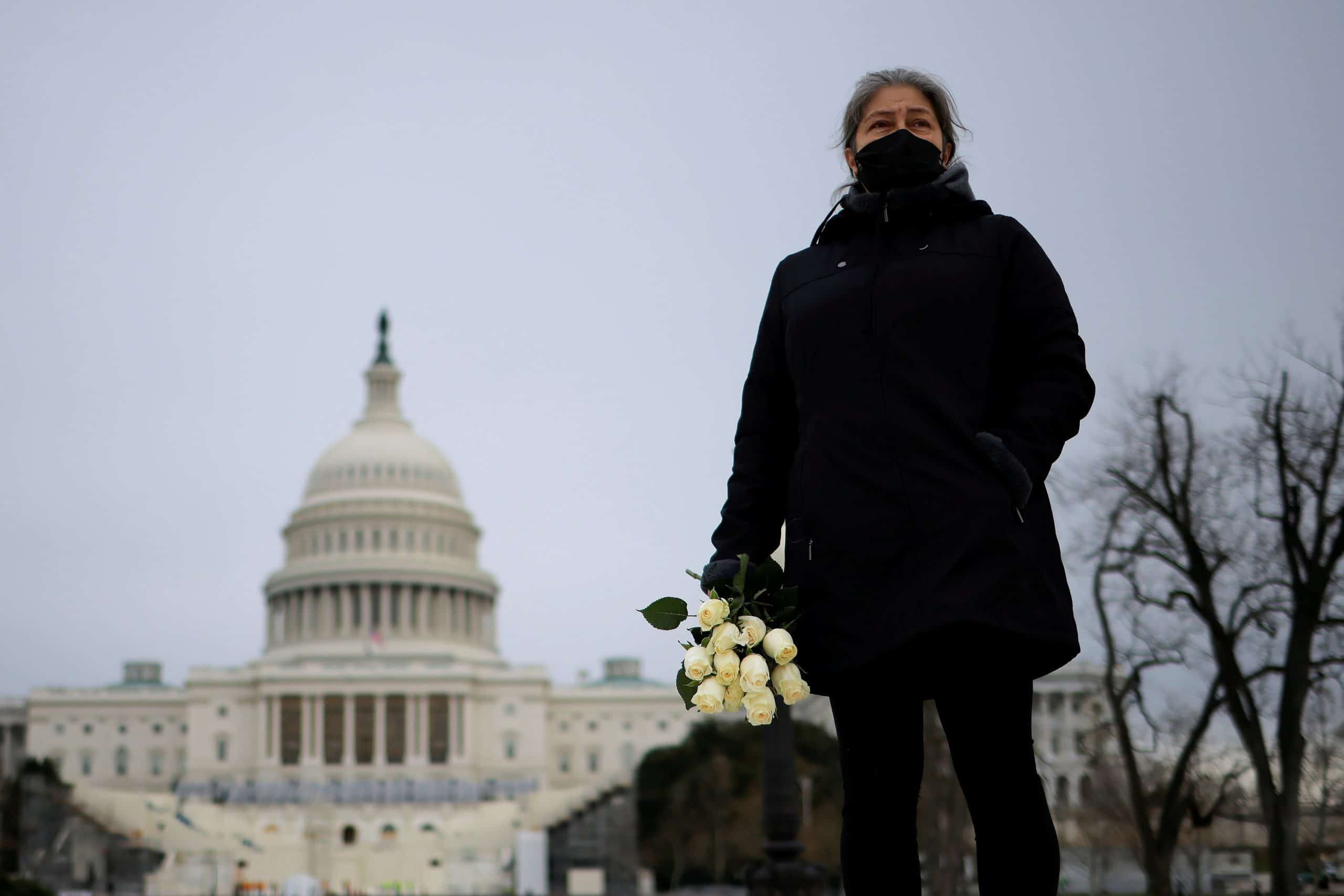January of 2008 and January of 2021 found me focused on the same building, but at profoundly different points in my life and for profoundly different reasons.
In January of 2008, I had just acquired my Congressional ID badge. As a freshman at Georgetown University, I was, like so many of my classmates, an ambitious and aspiring politico. My grand career plans seemed well on their way to realization, as I had secured an internship with the Congresswoman from my home state of South Dakota. (Yes, South Dakota only has one congressional district. Back off, Californians and New Yorkers.) Over two semesters of interning in Congress, I would answer the phone, read and respond to constituent correspondence, attend and take notes at committee meetings, and carry the occasional box of copy paper up to our third-floor office from the basement supply room. The part of the job I most enjoyed was giving tours to visiting South Dakotans, showing them all around the Capitol, through the Rotunda, Statuary Hall, and the old Supreme Court chamber, always ending in the gallery of the U.S. House of Representatives, occasionally staying to watch a floor debate.
Thirteen years later I have (largely) abandoned my political aspirations, joined the Jesuits, professed perpetual vows of poverty, chastity, and obedience, studied philosophy and theology, taught high school, been ordained a deacon, and done a million other things I never would have predicted in January of 2008. I still love politics, believe public service, properly understood, to be a noble calling, think of DC as my adopted hometown, and have many friends who work in politics, including in Congress.
And so it was with horror, sadness, rage, disbelief, and fear that I watched the events of January 6th, 2021 play out. Armed hordes of domestic terrorists overwhelmed (or, in a few shocking cases, were let in by) the Capitol Police, broke through the doors and windows of our seat of government, and shouted violent threats and messages of hate through the halls that I had only ever known to be reverently quiet. These rooms, home to landmark moments in our nation’s history and to my own treasured memories, were occupied by seditious goons and conspiracy theorists, egged on by unscrupulous and self-centered “leaders.” Where once I described a historic painting to a sight-impaired visitor, a man now carried the Confederate battle flag. Where once I sat and listened to a debate about health care policy, people now hid behind those same seats, fearful of being shot. I reeled in the face of such horrific contrasts: how could this be happening in this country, in this building?
In the days since this unprecedented attack on our democratic republic, many people have called for unity, to come together, to reconcile. I understand the motivation for those calls and I too desire to see them realized. But what does that word mean right now: reconciliation?
In my experience, the Sacrament of Reconciliation consists of two parts: the uncomfortable one and the beautiful one.
The uncomfortable part comes first. Taking the time to honestly and carefully look at my own sins and the ways in which they break down my relationships with God and those around me is uncomfortable. Admitting the pain and harm I cause is embarrassing and humbling. I squirm, sweat, and regret. Honesty is key to this process, though, and I know that. So, I take the time to examine my conscience and assemble my mental list of sins. And then off I go, into the confessional.
Next comes the beautiful part. Walking away from the Sacrament, having received absolution, I always feel 15 pounds lighter, relieved, and utterly freed by the great gift of God’s mercy. I’ve almost always received kind, non-judgemental advice from the priests to whom I’ve confessed. “X seems to be connected to this other thing you just mentioned. Y is something you should stay attentive to. I’ve found Z to be helpful in dealing with that same pitfall in my own life.” Reconciliation ends with God’s encouragement and liberating mercy. The discomfort of the first part is always worth the beauty of the second part.
We find ourselves as a nation in need of reconciliation, with both of its requisite steps. This is indeed a time for our country to come together, and such unity would be beautiful to behold. Are we prepared to first unite around honesty though?
We must come together to denounce the violent coup attempt we all witnessed. We must come together to hold accountable all who took part, including those people who incited and facilitated this attack. We must come together to recommit ourselves to reality, dispensing ourselves of “alternative facts” that allow us to choose our own truths. We must come together to soberly account for the role white supremacy played in the events of January 6th, 2021, and all too many events in the centuries preceding that date.
There can be no reconciliation without honesty.
[Editor’s Note: This piece can also be found on Encounter: a community blog from Boston College School of Theology and Ministry.]


